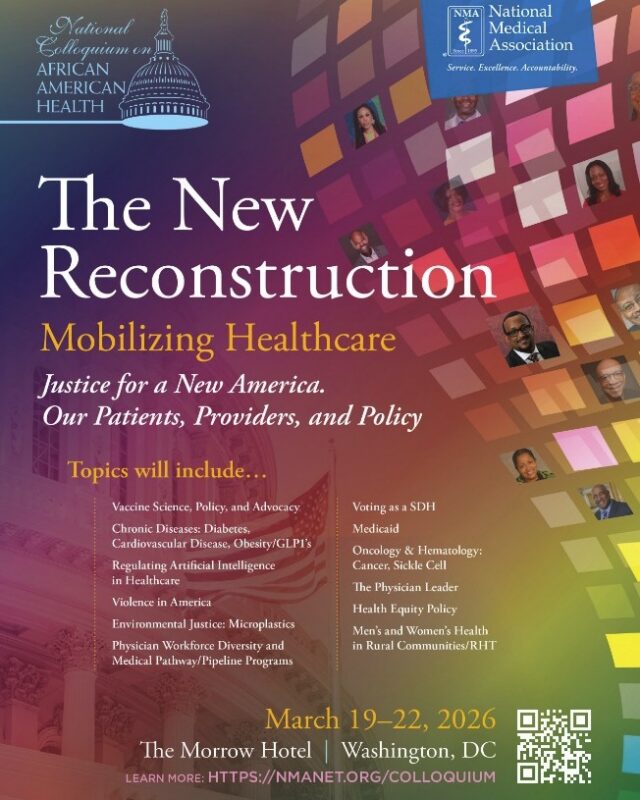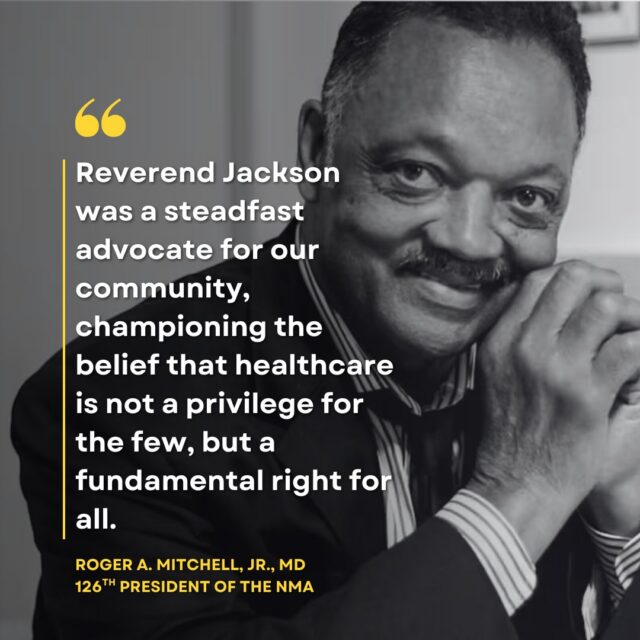June 11, 2020
Stephen Hahn, M.D.
Commissioner
Food and Drug Administration
1093 New Hampshire Avenue/ Mail Stop HF-1
Silver Spring, MD 20993
Dear Commissioner Hahn:
We of the Alliance of Multicultural Physicians (Alliance) would like to express our appreciation for the opportunity to confer with members of leadership at the Food and Drug Administration (FDA) on May 22, 2020 on issues related to the coronavirus pandemic. We are gratified to learn that FDA leadership shares our belief in the need for appropriate racial and ethnic inclusion in clinical trials that support vaccine prevention therapy and safe, effective treatments for the coronavirus. We are particularly grateful for the efforts of the FDA Office of Minority Health and Health Equity and our working partnership with Admiral Araojo and her staff.
We agree FDA must continue to promote and expand its policies of community outreach while encouraging sponsors to include diverse populations in clinical trials that better represent American patients who will use their products. While this need has been a topic of public
discussion since the 1993 National Institutes of Health Revitalization Act requiring women and minorities in NIH sponsored trials, it was with Section 907 of FDASIA of 2012 that FDA encouragement of sponsors became apparent as a strategy to achieve proper representation in
clinical trials. However, “encouragement” is no longer adequate to meet the need for a more effective response to the coronavirus pandemic as well as improvements in therapeutics for other diseases that ravage our American “minority” communities and perpetuate health disparities.
All of America, and indeed all the world is being victimized by the coronavirus pandemic that has illuminated the racial and ethnic health disparities that have been manifest in America since its beginning. We have all learned that “minority” patients are significantly overrepresented among those who have succumbed to COVID-19 disease. The degrees to which social determinants, environment, genomic factors, lifestyle, habits and practices, poorly controlled comorbid conditions and/or access to health care contribute to the differential impact of coronavirus on subsets of the American population, may be intuitive but are currently not well established. Yet, each of these factors can differ by geography and impact treatment outcomes.
What we have learned about the disproportionate impact of coronavirus on our communities is devastating. Data from the 40 states that collect race and ethnicity data show that White Americans are dying from COVID-19 at a rate of 22.7 per 100,000 in the population, whereas African Americans die at a rate 54.6 deaths per 100,000, Hispanic Americans at a rate of 24.9 deaths per 100,000, and Asian Americans at 24.3 deaths per 100,000. Though the data are sparse for Native Americans, in New Mexico they die from the COVID-19 disease at a rate that is 8 times that of the white population, and in Arizona they die at a rate that is 5 times that of all of others in the population. For Native Hawaiians and Pacific Islanders, the available data in ten states show percentages of COVID-19 cases and deaths that are two to three times greater than their percentage of the population.
Recent positive findings have been reported with an early trial of the remdesivir compound being developed as a therapy for COVID-19. Preliminary data from this global clinical trial appear to indicate that remdesivir shortens the time to recovery in patients hospitalized with COVID-19 by several days. These data were enough to support FDA’s decision to make the drug available for broader administration to hospitalized American patients under an Emergency Use Authorization. In the remdesivir trial, there was preliminary evidence of
effectiveness determined by recovery rate ratios observed in the group of All Patients and in the subgroup of White patients, but not in Black, Asian or Hispanic patient subgroups. This is probably a result of insufficient numbers of these patients.
For the past several years FDA has reported in its Drug Snapshots the demographics of the population evaluated to support the safety and effectiveness of respective new medicines. What seems clear is American “minority” patients are often overrepresented among sufferers of major diseases prevalent in the American population but underrepresented in clinical trials that inform the safe and effective use of drug treatments for these diseases. This circumstance suggests limitations in the data supporting safe and effective treatment in ethnic “minority” patients. Consistently, year to year, the majority of FDA approved products described in Drug Snapshots include a statement to the effect of insufficient availability of data to determine response in racial-ethnic “minority” patients. This problem is often compounded by the high prevalence of the disease among “minority” patients for which the product is indicated for use. Drugs are approved and prescribed for serious illnesses that afflict all with an assumption of safety and effectiveness for diverse groups, and yet the drugs/regimens are proven safe and effective for only a majority population subset. This should initiate a systematic evaluation of the products’ potential to contribute to health inequities.
The evidence suggests we are about to perpetuate and magnify an egregious deficit at a perfectly inauspicious moment. Given the disproportionate impact of COVID-19 on “minority” patients, we are at the precipice of one more American tragedy of disregard for the needs of its “minority” populations if remdesivir, or any vaccine or treatment, is approved for COVID-19 with data, and thus labeling, indicative of limits in our knowledge regarding safe and effective use in minority patients for whom the virus is disproportionately lethal.
This tragedy is entirely preventable. The Alliance strongly recommends that current circumstances demand change. It is urgent that FDA provide clear guidance to all sponsors of medical products directed at COVID-19 to assure inclusion that provides the basis for clinically meaningful data to address the needs of a diverse America. Transparency must be achieved with respect to the inclusion requirements conveyed to sponsors, the subsequent agreement on the inclusion goals, and the evidence of execution to achieve the stated inclusion goals. Business as usual no longer applies. We believe it should be considered unethical or inconsistent with the principles of the Belmont Report to initiate a pivotal protocol evaluation of a new medicine for treatment of COVID-19 without the required inclusion in the protocol of a recruitment plan and a statistical evaluation properly powered to achieve a valid conclusion of effectiveness of the new COVID-19 therapy in American “minority” patients. Post-marketing evaluation should be set aside as an acceptable alternative since the costs in patient morbidity and mortality associated with the delay in acquiring clinically meaningful guidance for treatments are difficult, if not impossible, to anticipate.
Most major advances in the regulation of drug development in America have been precipitated by tragedy (e.g., sulfanilamide, thalidomide, The US Public Health Service Study of Syphilis in the Negro Male). We must take advantage of this unique opportunity to avoid tragedy rather
than enduring the anguish and reacting to it. Regardless of whether it should matter, the world is watching. The Alliance stands ready to assist FDA and all who wish to engage the respective ethnic and racial communities of America with the objective of assuring the best quality clinical
trials data that adequately informs physicians to achieve the best possible health outcomes for all our American patients. Our country is at a critical juncture on how to move confidently and judiciously to address racial injustice, which permeates every aspect of our social and civic lives. Racial equity must also guide our process of evaluating and approving medical therapy for our communities, especially those that have dealt with generations of inequity.
We look forward to the opportunity to work with FDA on these critically important matters.
Respectfully submitted,
The Alliance of Multicultural Physicians
Walter Hollow, MD
President
AAIP
Michelle Albert, MD
President
ABC
Winston Wong, MD, MS
President and Chair
NCAPIP
Elena Rios, MD
President & CEO
NHMA
Oliver Brooks, MD
President
NMA
The Color of Coronavirus: COVID-19 deaths by Race and Ethnicity in the US. The APM Labs. May 26,
2020. https://www.apmresearchlab.org/covid/deaths-by-race
J Beigel, et al. Remdesivir for the Treatment of COVID-19 – A Preliminary Report. The New England
Journal of Medicine. DOI: 10.1056/NEJMoa2007764 (2020)
cc
The Honorable Nancy Pelosi, Speaker of the House of Representatives
The Honorable Mitch McConnell, Majority Leader, U.S. Senate
The Honorable Charles Schumer, Democratic Leader, U.S. Senate
The Honorable James Clyburn, Majority Whip, U.S. House of Representatives
The Honorable Kevin McCarthy, Republican Leader, U.S. House of Representatives
The Honorable Frank Pallone, Jr., Chair, House Energy & Commerce Committee
The Honorable Greg Walden, Ranking Member, House Energy & Commerce Committee
The Honorable Richard Neal, Chair, House Ways & Means Committee
The Honorable Kevin Brady, Ranking Member, House Ways & Means Committee
The Honorable Carolyn Maloney, Chair, House Oversight & Reform Committee
The Honorable Jim Jordan, Ranking Member, House Oversight & Reform Committee
The Honorable Karen Bass, Chair, Congressional Black Caucus
The Honorable Bobby Rush, Co-Chair, Congressional Black Caucus Healthcare Task Force
The Honorable Robin Kelly, Co-Chair, Congressional Black Caucus Healthcare Task Force;
Chair, Congressional Black Caucus Health Braintrust
The Honorable Joaquin Castro, Chair, Congressional Hispanic Caucus
The Honorable Raul Ruiz, Chair, Health Care and Mental Health Task Force
The Honorable Judy Chu, Chair, Congressional Asian Pacific American Caucus
The Honorable Barbara Lee, Co-Chair, Congressional Asian Pacific American Caucus
Healthcare Task Force
The Honorable Ami Bera, Co-Chair, Congressional Asian Pacific American Caucus Healthcare
Task Force
The Honorable Deb Haaland, Co-Chair, Congressional Native American Caucus
The Honorable Tom Cole, Co-Chair, Congressional Native American Caucus
The Honorable Brenda Lawrence, Co-Chair, Congressional Women’s Caucus
The Honorable Debbie Lesko, Co-Chair, Congressional Women’s Caucus
The Honorable Diana DeGette, U.S. House of Representatives
The Honorable Fred Upton, U.S. House of Representatives
The Honorable Kamala Harris, U.S. Senate
The Honorable Cory Booker, U.S. Senate
The Honorable Tim Scott, U.S. Senate
Mr. Stephen Ubl, President & CEO, PhRMA
Michelle McMurry-Heath, M.D., PhD, President, BIO








